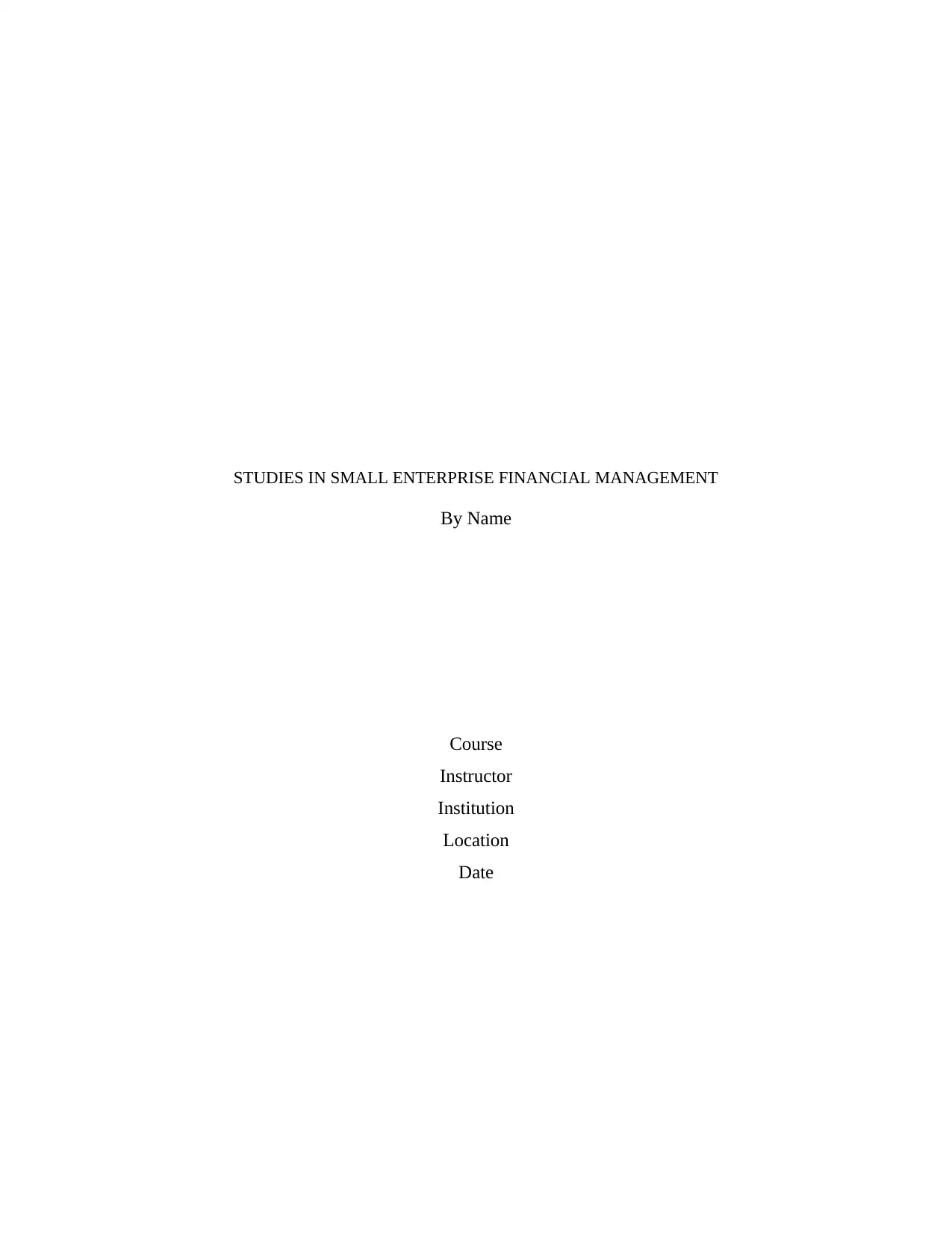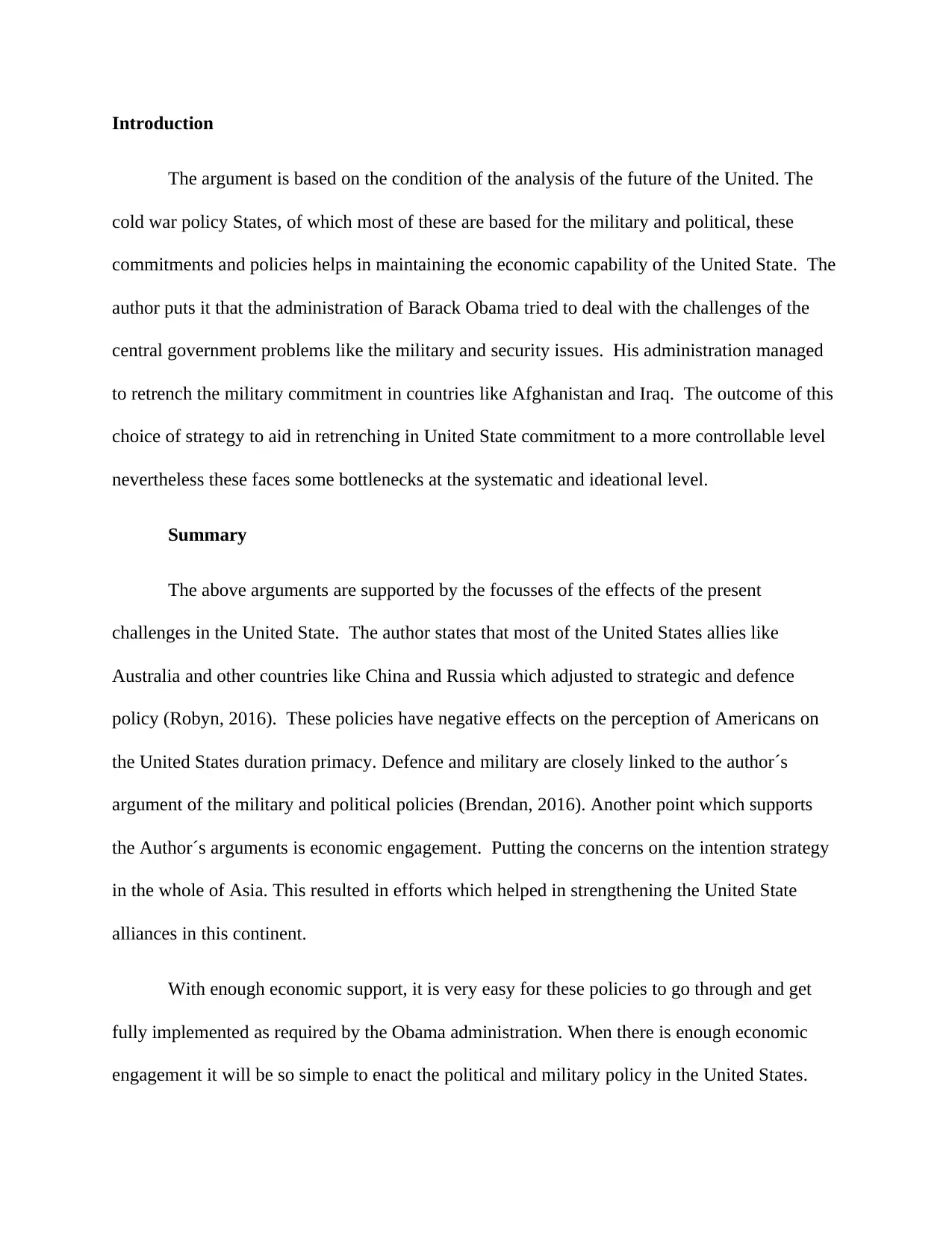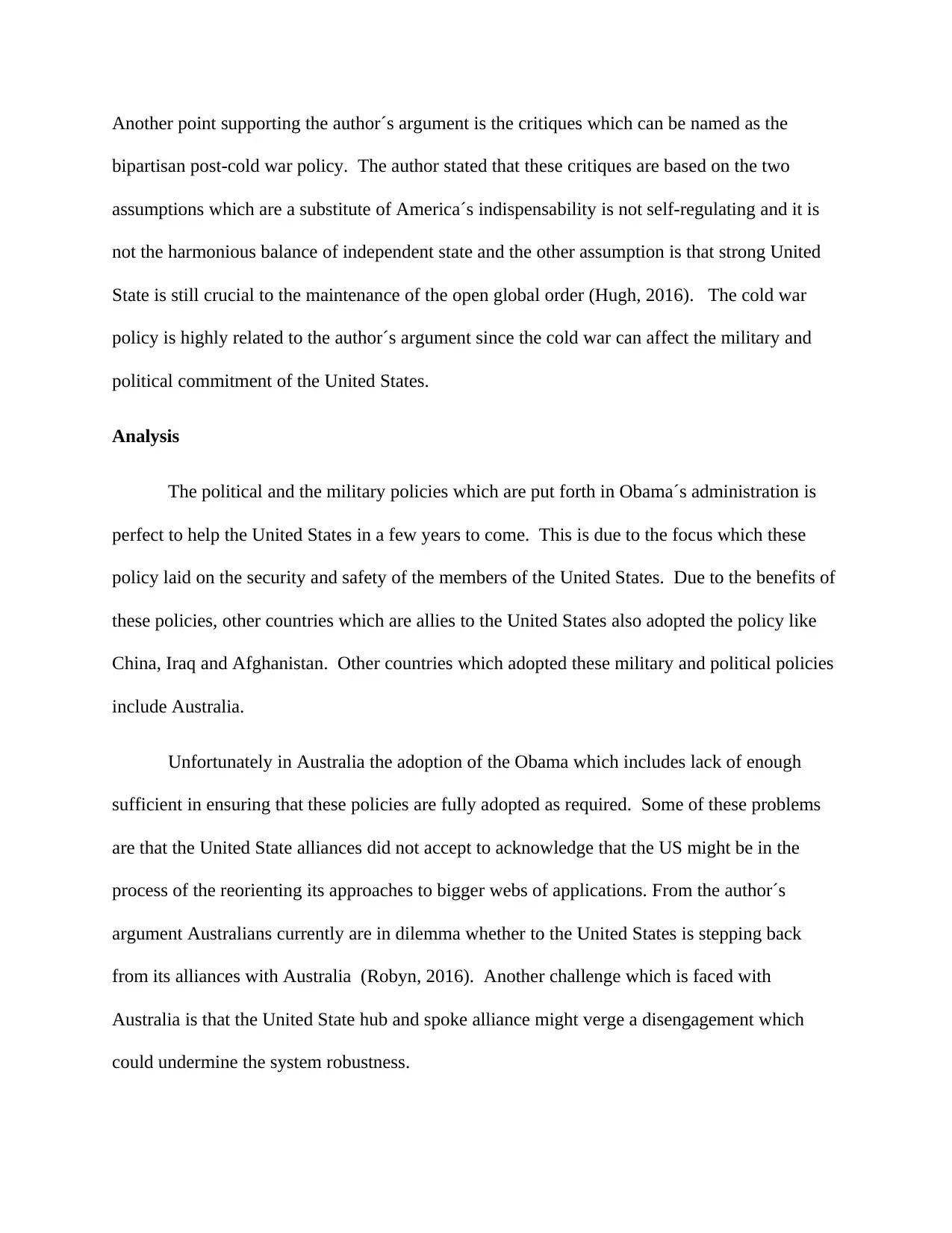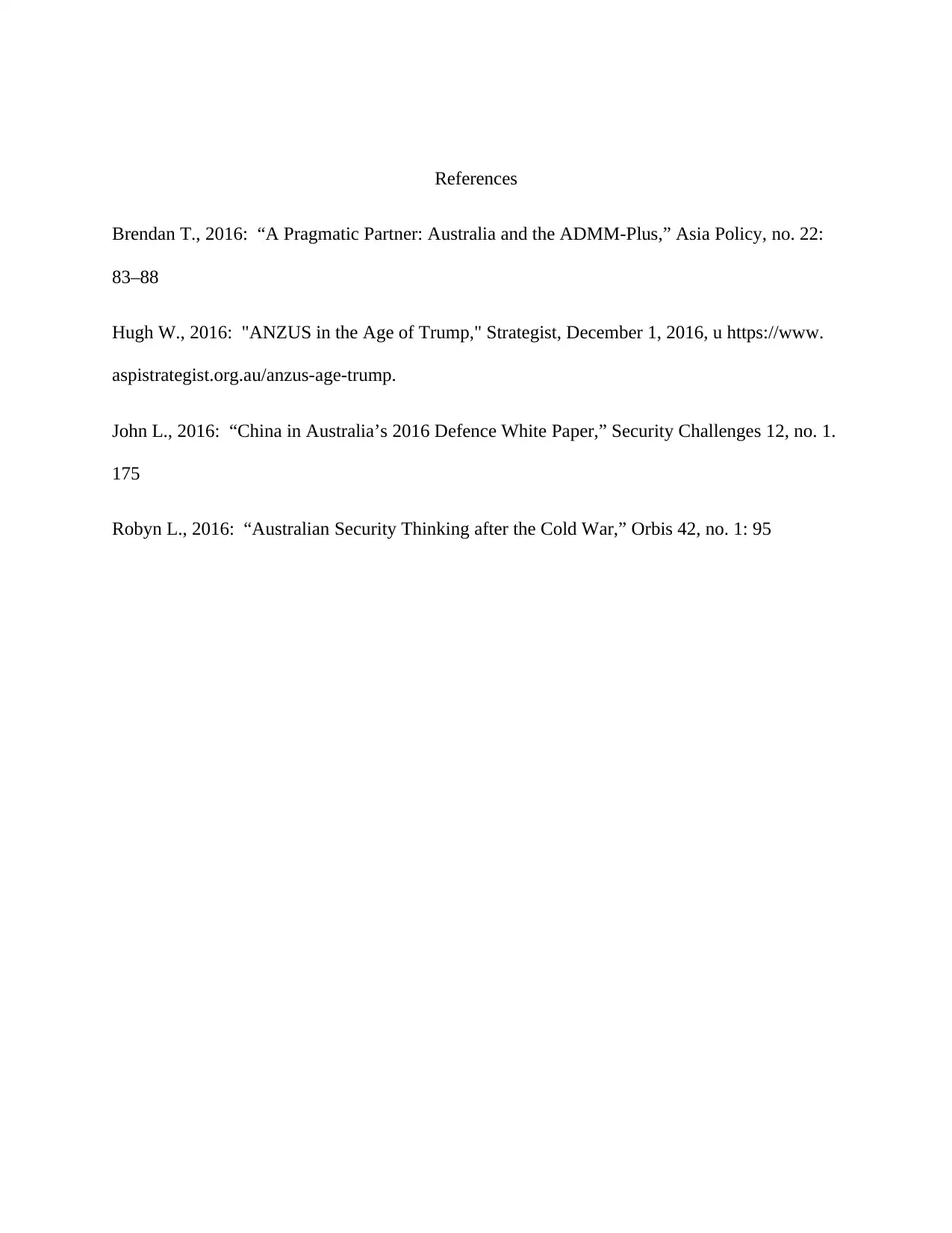Analytical Summary: U.S.-Australia Alliance in an Era of Change
VerifiedAdded on 2022/09/10
|4
|733
|22
Report
AI Summary
This report is an analytical summary of a paper discussing the U.S.-Australia alliance in a time of change, focusing on the shifts in U.S. primacy and their implications. The paper examines how the Obama administration attempted to manage political and military commitments and maintain economic capability. It highlights the challenges faced due to retrenchment of military commitments. The author also discusses the strategic choices and their impact on countries like Australia, including the dilemmas faced by Australia regarding the U.S.'s reorientation of approaches and potential disengagement. The analysis also touches on the critiques of the bipartisan post-cold war policy and the importance of a strong U.S. for maintaining global order. The author uses references from various sources to support the arguments. The report provides an overview of the key arguments, challenges, and potential future developments in the relationship between the two nations.
1 out of 4











![[object Object]](/_next/static/media/star-bottom.7253800d.svg)